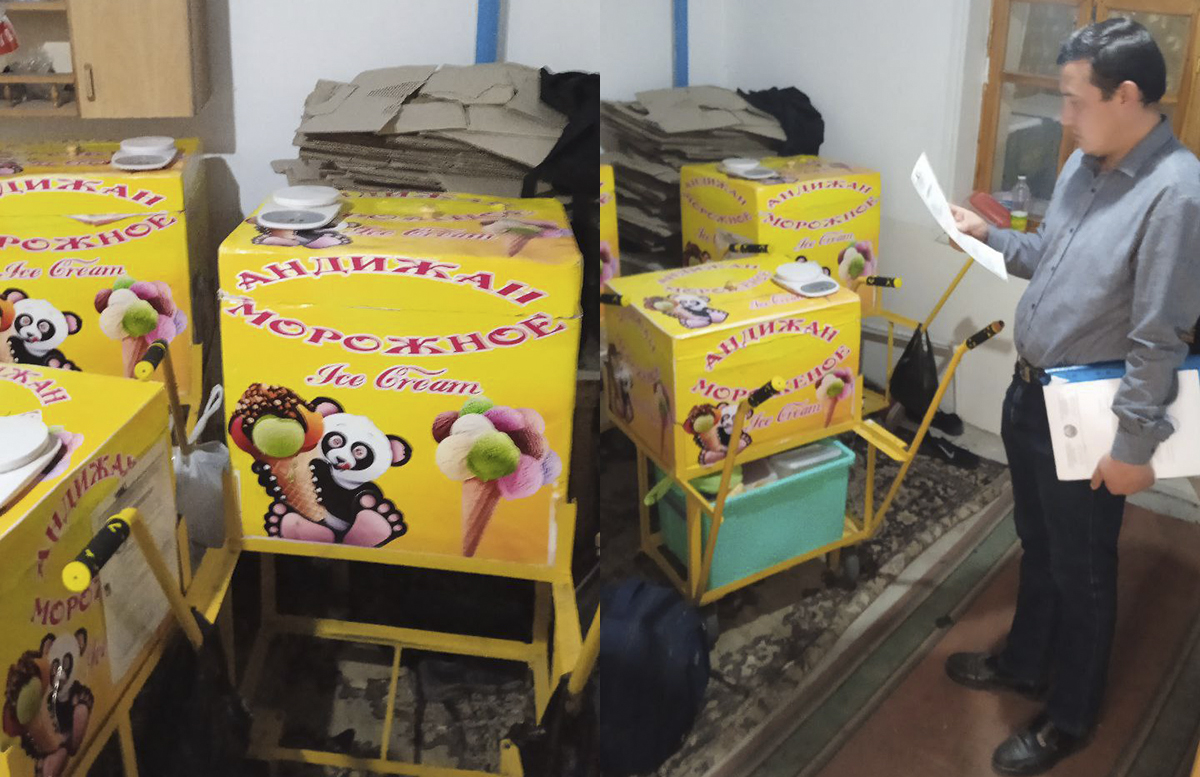This article is also available in:
Русский (Russian)
Uzbek
Representatives of the Sanitary and Epidemiological Wellbeing and Public Health Committee (SES) are raising the alarm. Cases of food poisoning from ice cream sold on the streets have increased in Uzbekistan. This product has been found to contain staphylococcus. Experts urge Uzbek citizens to be cautious with this sweet treat and avoid purchasing it on the streets.
Recently, the number of poisoning cases among the population has increased. The main reasons for this are the poor quality of dairy products used to make ice cream and the failure to observe sanitary and hygienic standards during its sale. A particularly alarming fact is that many street ice cream vendors do not have the necessary conditions for proper storage and transportation of their products.
SES experts note that ice cream sold on the streets in unsanitary conditions may contain staphylococcal bacteria. These bacteria can cause serious poisoning and various diseases, especially in children and people with weakened immune systems.
Staphylococcus is a pathogenic microorganism that can cause the development of secondary infections. When it gets into dairy products such as ice cream, it becomes a health hazard. Experts warn that refreezing melted ice cream can significantly increase the risk of infection.
The Sanitary and Epidemiological Wellbeing and Public Health Committee strongly recommends that consumers avoid purchasing ice cream from unauthorized points of sale and street kiosks. It is also important to pay attention to the storage and transportation conditions of the product. Ice cream should be stored at a consistently low temperature and should not be refrozen after melting.
“Unfortunately, today we observe cases of ice cream being sold on the streets in non-specialized containers. These containers are not equipped with refrigeration equipment, so they cannot ensure the proper cooling and quality of the product. Most ice cream containers sold on the streets today do not meet sanitary and hygienic requirements. These plastic containers also cannot be disinfected chemically,” SES emphasized.
Committee representatives urged citizens to report cases of ice cream sales in unsanitary conditions. Currently, control raids and inspections of sales points are being conducted to identify and prevent violations of sanitary standards.
Experts added that street ice cream lacks information about the date and place of production, storage conditions, and shelf life. Moreover, the vendors of such ice cream are not provided with special uniforms and do not have medical records. According to the requirements, workers in household services, trading points, and employees involved in the sale of food products must undergo a medical examination every six months.
Ice cream is beneficial for the normal functioning of the nervous and gastrointestinal systems, but it is crucial to adhere to sanitary and hygienic rules when making it. First and foremost, attention should be paid to the source of the milk, whether it has passed veterinary examination, and if it has the appropriate documents.
The Committee emphasized that ice cream manufacturers must comply with technological processes and strictly adhere to hygiene rules in production. If workers suffer from respiratory diseases such as tonsillitis, sinusitis, or stomatitis, they should be temporarily relieved from work until recovery. Additionally, if workers have skin diseases on their hands, they should also be removed from work according to established procedures. Regular preventive measures among workers are necessary to maintain cleanliness, as this is the most effective and convenient way to prevent gastrointestinal diseases.
In the summer heat, ice cream remains one of the most popular treats. However, experts remind that buying ice cream should be a conscious and safe choice. Following simple hygiene rules and being vigilant will help avoid unpleasant health consequences.
The text has been translated by AI. For more accurate information, please refer to the Russian version of the article.

